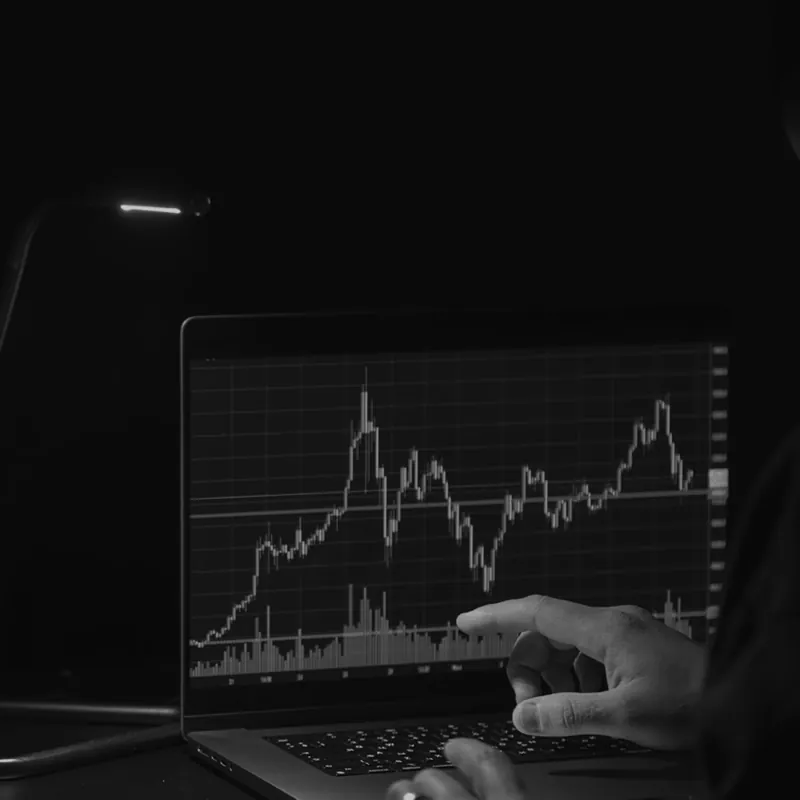Trading
The trading industry in India encompasses the buying and selling of goods and services, both domestically and internationally.

Trading
The trading industry in India encompasses the buying and selling of goods and services, both domestically and internationally. It includes various segments such as wholesale, retail, export-import, and online trading, and covers a wide range of products like electronics, machinery, textiles, chemicals, and agricultural goods. The trading sector plays a crucial role in connecting manufacturers and consumers, driving economic growth through the exchange of goods.
In India, the trading industry is a key driver of the economy, contributing significantly to GDP and employment. As of 2023, the Indian trading market is valued at approximately USD 500 billion, with a projected CAGR of 8% from 2025 to 2030.
Current challenges and pain points:
Supply Chain Disruptions
Logistics challenges, including delays and high transportation costs, hinder smooth trade operations.
Currency Fluctuations
Exchange rate volatility affects profitability and pricing for international transactions.
Global Competition
Increasing competition from international traders and e-commerce platforms pressures local businesses.
Technological Adoption
Slow integration of digital tools and automation limits trading efficiency and customer engagement.
Inventory Management
Managing inventory levels amidst fluctuating demand and supply chain issues increases operational risks.
Skilled Labor Shortage
A lack of qualified workforce in logistics, IT, and trade management impacts operational efficiency.
Payment Delays
Late payments and credit risk in cross-border trade strain cash flow and working capital.
Trade Barriers
Tariffs, customs delays, and non-tariff barriers hinder smooth international trade.
How Can We Help and Why Choose Stratefix Consulting?
Stratefix Consulting delivers specialized solutions to effectively address the key challenges in trading sector in India.
Cost Optimization
Regulatory Compliance
Supply Chain Management
Market Expansion
Technology Integration
Risk Management
Competitive Positioning
Workforce Development
Financial Strategy
Sustainability Initiatives
FAQs
Find answers to common questions and learn more about how we can help you.
Why is my trading business growing in volume but not in profitability?
Stratefix Consulting helps build pricing discipline, credit control systems, and portfolio profitability mapping so you grow with margin clarity, not just top-line excitement.
Why is my sales team unable to build new markets or customer segments — despite strong products?
Most teams operate without:
- structured market development plans
- segment penetration strategy
- clear sales narratives
- pipeline review systems
Why is my organisation always dependent on me (the owner) for supplier negotiations, credit approvals, and major decisions?
Stratefix Consulting builds leadership clarity, decision frameworks and management systems so the company grows beyond founder dependency.
Why are we losing customers even when our pricing and service are competitive?
Stratefix Consulting structures customer experience protocols + service rhythms so clients stay loyal even in price-sensitive markets.
Why is scaling to multiple states or countries difficult even when demand exists?
- distributor model vs direct model
- regional leadership bandwidth
- demand forecasting
- cashflow planning
- compliance & documentation
- supply chain capability
- multi-location coordination
When should a trading business consider consulting support beyond operations?
- margins shrinking despite higher volume
- credit terms blocking cashflow
- teams lacking ownership
- customer churn rising
- business relying on the owner
- expansion attempts failing
Stratefix Consulting strengthens sales engines, team structure, profitability discipline and multi-city execution capability helping trading companies scale with confidence.

